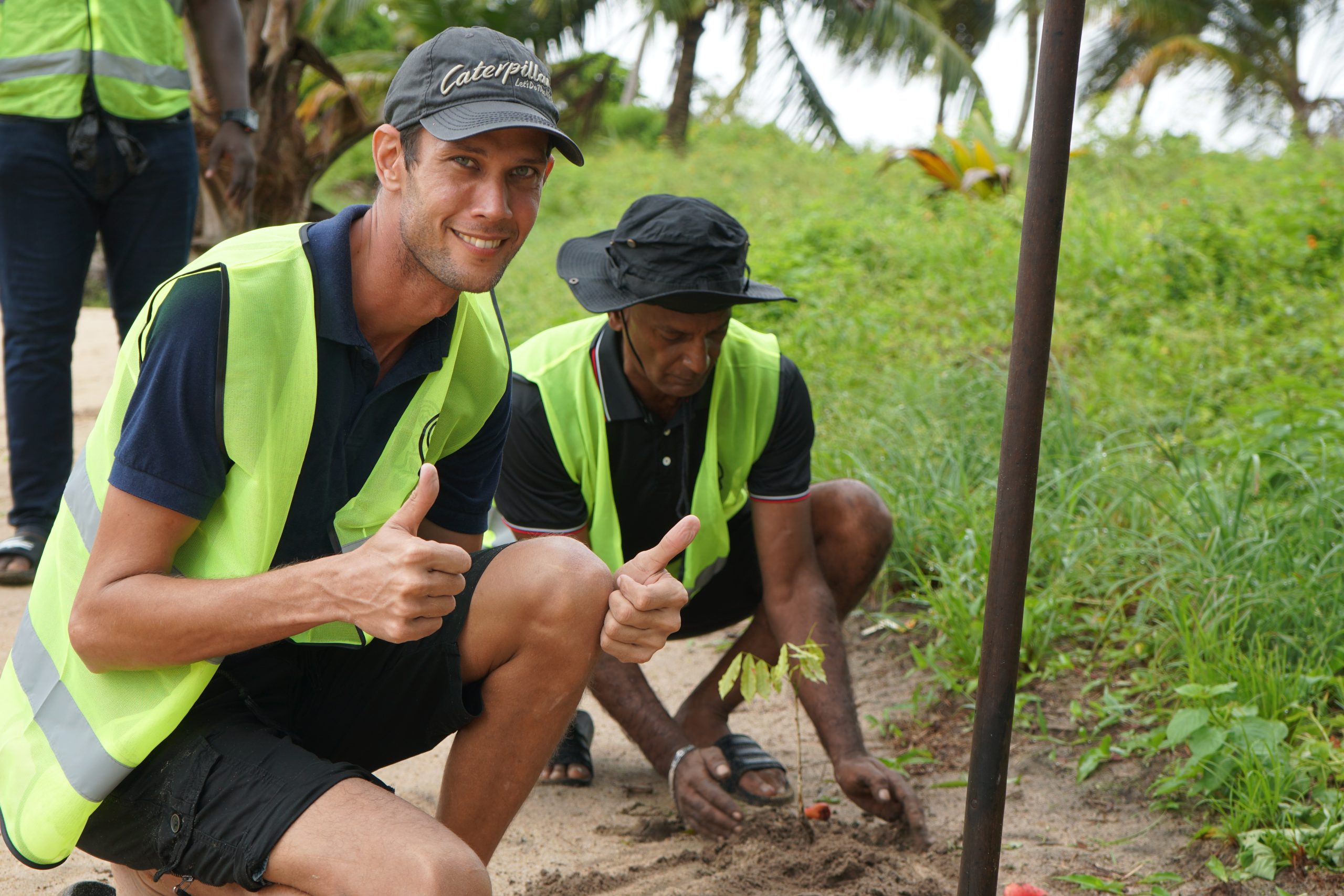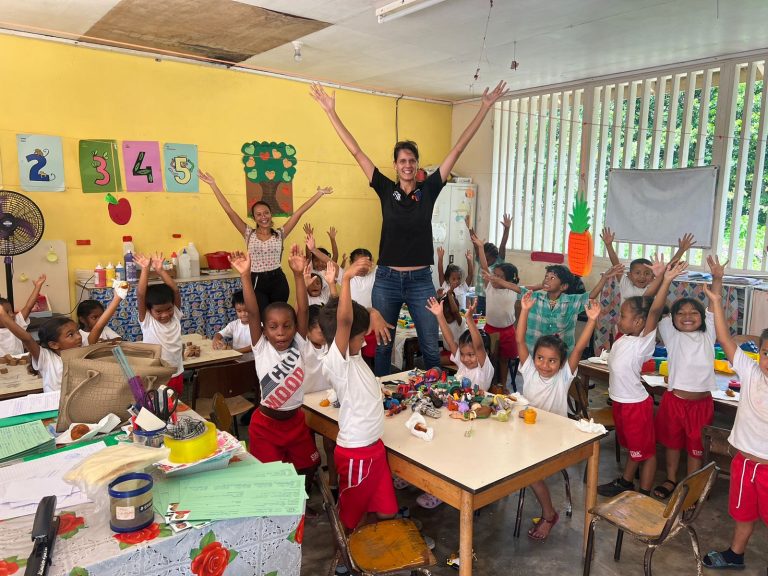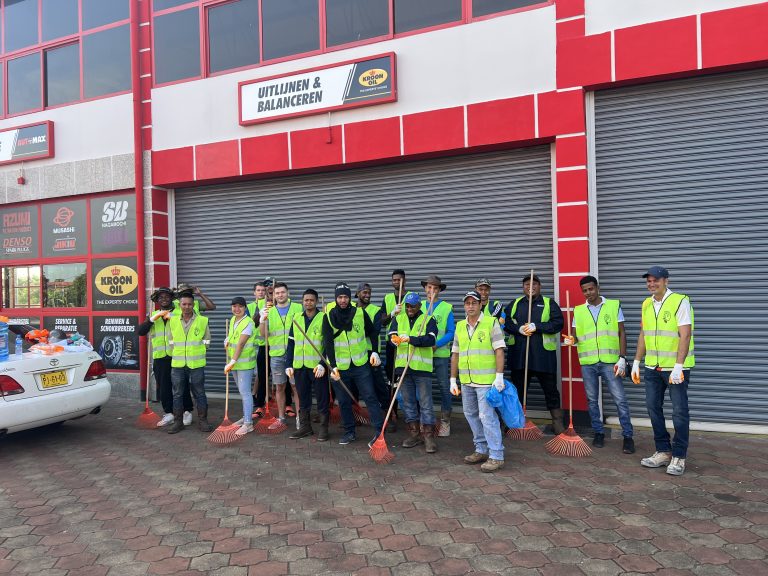Why We Chose This Project
At HSP, we are committed to environmental sustainability and community well-being. Our project to plant 20 red kabbes trees and 20 greenheart trees along the coast of Galibi is a practical step toward preventing erosion and promoting beach stability. This initiative aligns with several United Nations Sustainable Development Goals (SDGs), particularly:
- SDG 13: Climate Action: Planting these trees helps protect the coastline from erosion, acting as a natural barrier against the impacts of climate change.
- SDG 15: Life on Land: By planting indigenous species, we are aiding in ecosystem conservation and restoration, providing habitats for various plants and animals.
- SDG 17: Partnerships for the Goals: This project is a collaborative effort involving local communities, government agencies, and environmental organizations, exemplifying the power of partnerships in achieving sustainable development.
Making It Happen
The journey to Galibi began early in the morning, with eager participants gathering at the meeting point. They boarded a comfortable tour bus, enjoying scenic views of Suriname’s landscapes on the way to the waterfront, where a colorful boat awaited.
The boat trip through winding rivers and lush mangrove forests allowed travelers to immerse themselves in the natural beauty of Suriname. The calm waters and serene environment set the tone for the day’s activities.
Upon arriving at the coast of Galibi, participants were greeted by warm sunshine and soft sand. They disembarked, ready to plant the 20 red kabbes trees and 20 greenheart trees. These trees form a natural barrier, stabilizing the soil and protecting the coastline from tidal forces and storm surges. This effort helps mitigate the adverse impacts of climate change and human activities on the coastal environment.
Successfully planting 40 trees along Galibi’s coast marks a significant step toward sustainable environmental conservation and erosion control. Additionally, the planting of indigenous trees like red kabbes and greenheart supports ecosystem restoration and biodiversity. These trees provide habitats and food for various species, enhancing the local ecosystem. The scientific names of the trees are Andira coriacea (red kabbes) and Handroanthus serratifolius (greenheart).
This initiative demonstrates our commitment to responsible and sustainable development, addressing pressing environmental challenges like erosion and habitat loss. By contributing to the SDGs, we are working towards a more sustainable and resilient future.
Working Together To Make A Difference
This initiative was a collaborative effort with SBB (Surinaams Bosbeheer) and George Kajoeramari from the indigenous Karaiben tribe. George, who lives and works in Galibi and owns Wejoe Suriname Eco Tours, played a crucial role. The residents of Galibi also supported and participated in this initiative.
Participants expressed their appreciation for the well-organized trip and the opportunity to contribute to environmental conservation. One participant remarked, “Participating in the trip to Galibi was an incredibly enriching experience. The journey itself was seamless and well-organized, allowing us to relax and enjoy the scenic views along the way. Upon reaching Galibi, the atmosphere was nothing short of magical. The opportunity to contribute to environmental conservation through tree planting was both rewarding and fulfilling. The team behind the trip demonstrated professionalism and expertise, ensuring that everything ran smoothly from start to finish. Overall, it was a fantastic outing that left us with unforgettable memories and a sense of accomplishment knowing that we had made a positive impact on the environment.”
Expanding our initiatives
As we continue our efforts, we invite you to join us in journey of community innitiative!.
Interested in learning more about our efforts towards sustainability? Feel free to share your thoughts in the comments below or reach out to us through our contact page.





